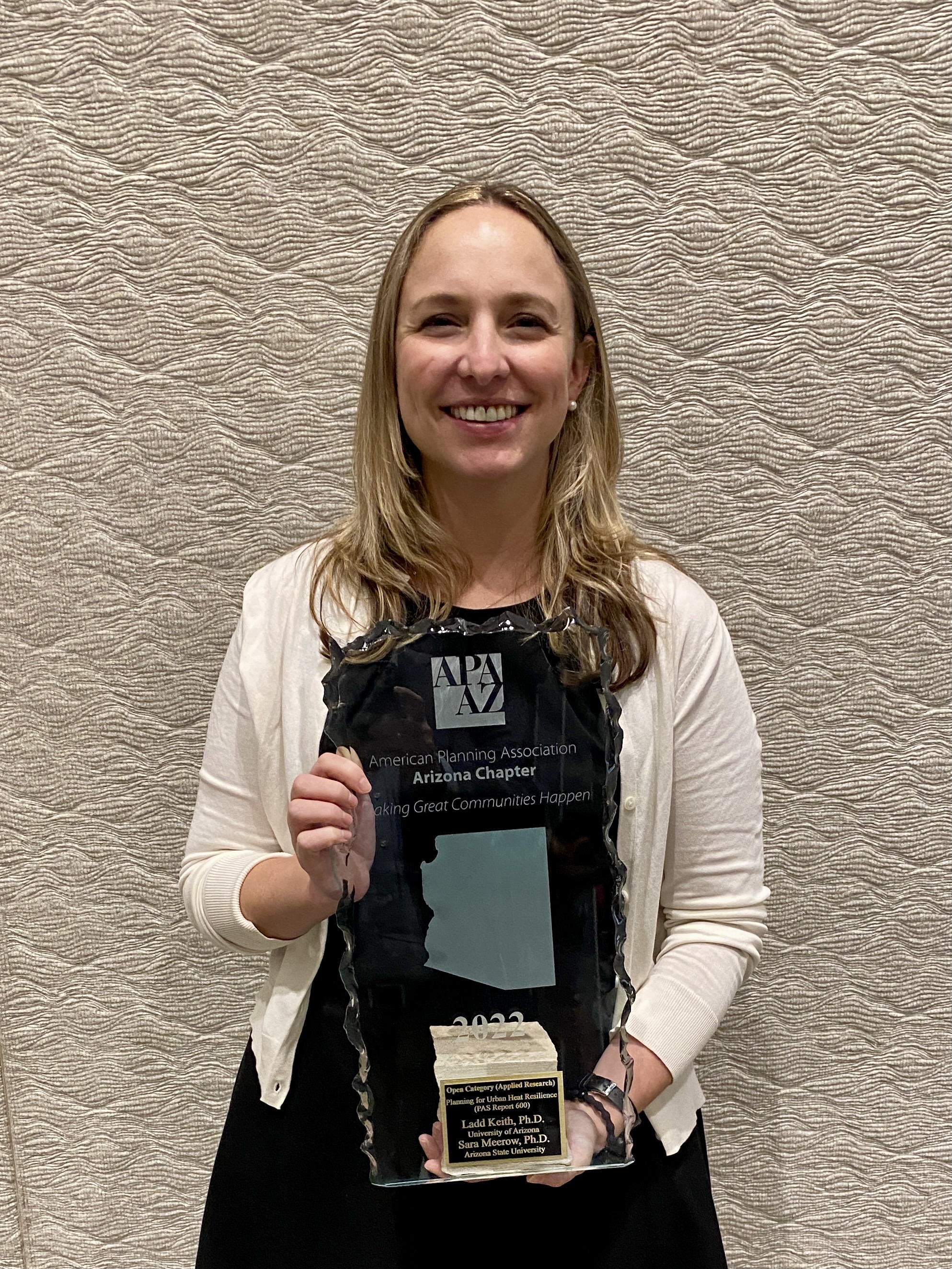Sara Meerow, associate professor in Arizona State University's School of Geographical Sciences and Urban Planning and affiliate faculty member of ASU’s Urban Climate Research Center, was selected as a recipient of the Arizona chapter of the American Planning Association's Open Category Award for her research report “Planning for Urban Heat Resilience.”
The award recognizes outstanding efforts in planning and planning leadership from individuals that build awareness of the field's importance and whose work helps to cultivate thriving communities across Arizona.
Meerow’s research conducted in collaboration with Ladd Keith of the University of Arizona was published by the American Planning Association as a Planning Advisory Service (PAS) report. It is the first PAS report in the publication’s 70-year history to focus on planners' growing role to help mitigate and manage rising heat hazards.

Sara Meerow
“Heat is a deadly and growing threat for communities everywhere, yet has traditionally received less attention than other more visible hazards,” said Meerow, whose research focuses on making cities more resilient to climate change. “In most places, existing efforts to address heat are not well coordinated. With this report, we hope to provide communities with a comprehensive framework and practical strategies for becoming more resilient to heat.”
The report breaks down the complexities of urban heat resilience, including heat contributors like climate change and the urban heat island; explains important concepts related to how humans experience heat; and describes key organizations critical to governing urban heat at the local, state and federal levels.
Meerow and Keith also provide detailed guidance on how communities can help solve these issues through specific heat mitigation and management strategies.
As outlined in the report, heat mitigation strategies that cities can implement include: changing the way the built environment is planned and designed; incorporating more vegetation into urban environments; and reducing waste heat.
Potential heat management strategies that focus on protecting people from heat that cannot be mitigated, include: establishing dedicated cooling centers where people can seek shelter and assistance; ensuring communities have access to reliable energy and indoor cooling; and requiring certain protections for people working outdoors in hot weather.
“It's really nice that our (research) is being recognized by the American Planning Association Arizona Chapter as it represents a collaboration between faculty from two Arizona urban planning schools to create guidance for planners nationwide,” said Meerow. “This award shows that planners in the state recognize the importance of planning for urban heat resilience.”
Top image courtesy Pixabay.
More Environment and sustainability

From environmental storytelling to hydroponics, student cohort crafts solutions for a better future
A select group of students from Arizona State University's College of Global Futures, a unit within the Julie Ann Wrigley Global Futures Laboratory, is laying the foundation to drive change…

2 ASU faculty elected as AAAS Fellows
Two outstanding Arizona State University faculty spanning the physical sciences, psychological sciences and science policy have been named Fellows of the American Association for the Advancement of…

Homes for songbirds: Protecting Lucy’s warblers in the urban desert
Each spring, tiny Lucy’s warblers, with their soft gray plumage and rusty crown, return to the Arizona desert, flitting through the mesquite branches in search of safe places to nest.But as urban…


